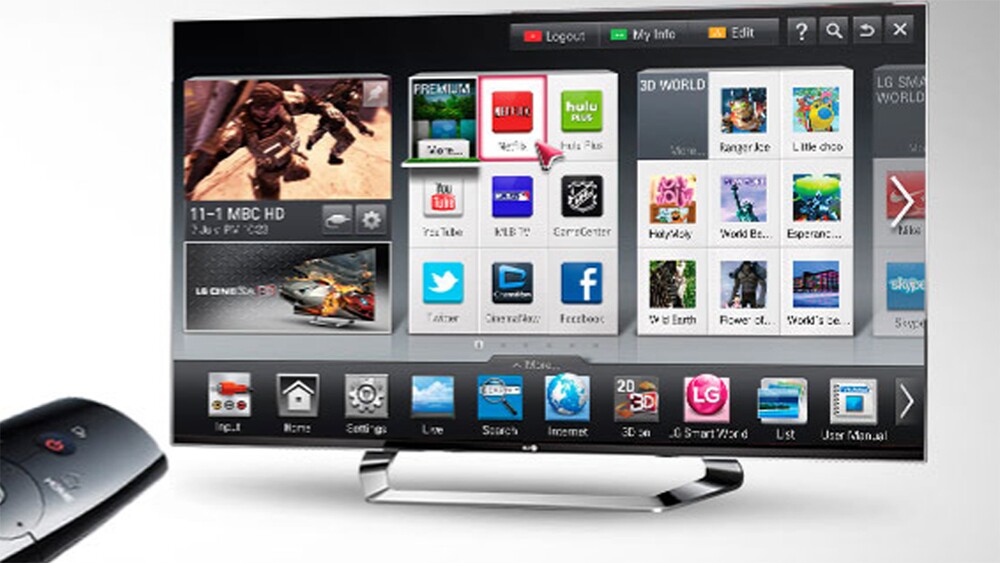Smart TV manufacturers are making a smart move. Instead of offering competing technologies for connected TVs, they're looking to partner and form a universal platform. While manufacturers are currently pushing Smart TV technology as a way to sell more sets, the competing platforms being developed by individual manufacturers leads to consumer confusion and requires developers to customize their apps for different platforms. In order to develop a standard that can create a thriving ecosystem for developers, a number of TV manufacturers have established the SMART TV Alliance and are looking to bring competitors into the fold.
The problem is clear. With TVs becoming more and more connected and integrating more online features such as content delivery services and apps, each consumer electronics manufacturer developing its own Smart TV platform could be the dawn of a new format war. We've seen this several times in connection with the TV. In the late 70s and 1980s it was Betamax versus VHS and more recently we had HD DVD and Blu-Ray facing off. In both cases, the latter won out, but if manufacturers stand off against each other, it's not only the manufacturers but also the consumers that ultimately lose.
The mission of the Smart TV Alliance is to create a platform that will operate across all Smart TVs, which would ultimately result in a greater amount of content for all devices. The Smart TV Alliance was formed under the motto "build once, run everywhere," which means that developers interested in creating apps for Smart TVs can create one app that will run on all compliant Smart TVs.

Founding members of the Alliance are LG Electronics and TP Vision, which represents Philips TV. A handful of Japanese TV manufacturers are also said to be making steps to join.
"Before today, the Smart TV industry was a very difficult market for both TV manufacturers and application developers as TVs from different brands used different platforms and technologies," says Bong-seok Kwon of LG Electronics and president of the Smart TV Alliance. "Smart TV Alliance creates a larger playing field which encourages developers to create more and better TV applications at the same time giving manufactures and consumers the richest source of movies-on-demand, music services, games, social networking and more."

While developers would appreciate a unified ecosystem for developing apps for the Smart TV platform, the Alliance also clears any confusion that consumers might also experience. Each Smart TV manufacturer might still have its own app store, but in the future, there could also be one general Smart TV app store. There won't be an issue of whether a particular app will work on a particular TV.
Manufacturers will also benefit from reduced development costs associated with creating their own platform. "Instead of spending valuable time on porting and testing on different platforms, developers can focus their creativity solely on realizing apps that consumers will enjoy. Now we can really make it interesting and fun for everybody," says Alain Perrot of TP Vision, and a Smart TV Alliance Executive board member.

In an effort to attract new partners to join, the organization has established Smart TV Alliance Consortium. The consortium's primary objective is to help define technical specifications that will enable application developers to create their applications once and run them on multiple TVs regardless of the platform.
An initial goal of the Alliance is to make the first version of its SDK available for free on its website so developers can get started on applications. The SDK is based on open web technologies such as HTML 5, and allows for developed web applications to run on Smart TVs from participating members. The first version, SDK 2.0, is expected to be released at the end of the year, in order for developers to create applications for 2013 model TV sets from participating Alliance members. Registration for the SDK is currently open on the Smart TV Alliance website.
While it remains to be seen if all major manufacturers will get on board, developers and consumers should be crossing their fingers they do.
Source: Smart TV Alliance







